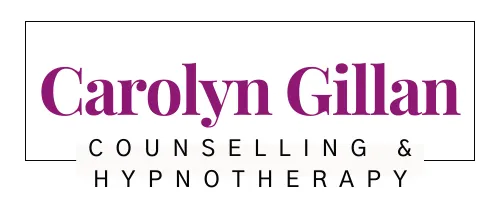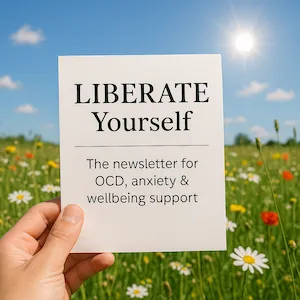
How do I tell the difference between normal doubts and Relationship OCD?
“How do I know I love him?”
“What if I stop loving her and break her heart?”
“Are they the right person for me?”
“If I love them, shouldn’t I miss them more when we’re apart?”
These are some of the many questions my clients have asked about their relationships. On the face of it, they seem like reasonable questions. Questions that anyone with a legitimate relationship concern might ask.
So, how do you tell the difference between normal doubts and Relationship OCD (ROCD)? The biggest clue is the level of distress and impairment caused by the thoughts. ROCD tends to dominate people’s lives. It leaves them feeling distraught, exhausted, confused, and unable to trust their judgment.
Living with ROCD
Living with ROCD can be a challenging and isolating experience. The persistent doubts and fears can overshadow the pleasure of being in a relationship. You are likely to feel confused and distressed. Understanding ROCD is the first step towards breaking its hold over you.
What is ROCD?
Relationship OCD is a subtype of Obsessive-Compulsive Disorder that centres around intimate relationships. Unlike typical relationship doubts, ROCD involves relentless questioning and anxiety. These thoughts can focus on the relationship itself. Or on your partner’s perceived flaws.
Recognising the Signs
Recognising ROCD is crucial for managing it effectively. ROCD thoughts are intrusive, persistent, and cause significant distress. They are more intense and frequent than normal relationship concerns.
Common Symptoms of ROCD
If you have ROCD, you may experience a range of symptoms.
Obsessions:
Relationship-centered Obsessions. You might have doubts about the suitability of your relationship. You might ask yourself, “How do I know I love my partner?” and “Are they the right person for me?”
Partner-focused Obsessions. You may fixate on your partner’s attributes, thinking “Is my partner attractive enough?” or “Does my partner have the right personality?”
Compulsions:
Reassurance Seeking. You might seek validation from your partner or others. You may ask them questions like, “Do you think we’re a good match?” or “Do you believe I love my partner?” This reassurance provides only temporary relief from anxiety.
Checking. This involves analysing your feelings to check they are genuine. Or analysing your partner’s behaviour to check they are genuine.
Comparisons. You might compare your relationship or partner with others. This could be to look for signs that something is lacking. Or to look for reassurance that everything is as it should be.
Impact of ROCD on Relationships
These obsessions and compulsions often cause significant strain on relationships. The effects of ROCD are likely to extend beyond you. Your relationship can suffer due to the relentless nature of ROCD. Your partner may feel pressured by your constant need for reassurance. Or it can lead to frustration and misunderstandings.
Moreover, you might feel isolated and misunderstood. The intrusive thoughts can cause immense distress. They can make it hard to enjoy your relationship. Over time, compulsive behaviours can erode trust and intimacy.
Steps to Manage ROCD
Managing ROCD involves a combination of therapeutic approaches and self-help strategies. Here are some practical steps you can take:
Get Professional Help
Consult a counsellor or therapist who has an understanding of ROCD. Cognitive-Behavioural Therapy (CBT) informed approaches are particularly effective for ROCD.
Medication
Selective Serotonin Reuptake Inhibitors (SSRIs) are often prescribed. They can help reduce the symptoms of OCD, including ROCD.
Mindfulness
Mindfulness techniques can help you observe your thoughts without reacting to them. This reduces the compulsive need to seek reassurance.
Self-Help Strategies
Education. Learning about ROCD can help you to understand and manage your symptoms.
Good Communication. Explaining ROCD to your partner can build empathy and support and ease some of the distress.
The Importance of Early Intervention
The sooner you seek help, the better it is for your relationship. With the right help, it is possible to overcome the challenges of ROCD. When you overcome ROCD, you can begin to fully enjoy your relationship again.


